Turkey Faces Backlash from RSS: The recent diplomatic actions of Turkey have been met with vigorous opposition from India’s nationalist groups. When Turkey decided to extend its support to Pakistan on a number of significant issues, it soon found itself at the receiving end of powerful Indian groups’ attacks.
You may be surprised to know why this issue is of so much significance today. The Swadeshi Jagran Manch (SJM), which is still closely associated with the powerful Rashtriya Swayamsevak Sangh (RSS), has expressed its biting disapproval. Their irate outburst followed after Turkey chose to stand with Pakistan on Kashmir and other contentious issues involving India’s national interest.
Turkey Faces Backlash: The Strong Response From SJM
The Swadeshi Jagran Manch has taken official action to protest against Turkey’s moves. You could view this response as part of wider tensions among the countries that have escalated in recent times.
SJM sent formal letters to Prime Minister Narendra Modi and External Affairs Minister S. Jaishankar
They appealed to Indian citizens to desist from purchasing Turkish goods
They demanded curbs on imports from Turkey
“Turkey flies into ‘Swadeshi’ anger” accurately reflects the mood since nationalist sentiments have driven this reaction. The community has firm opinions regarding guarding Indian interests from foreign intervention, particularly when other countries seem to be undermining India’s stance on Kashmir.
Economic Implications of The Dispute
You ought to know that such boycott calls may impact the trade relations among these countries. The SJM has requested Indian citizens to desist from purchasing Turkish-made products as a gesture of protest.
Their appeal would probably be motivated by Turkey’s ongoing support of Pakistan on matters India considers to be critical for national security. When Turkey decided to side with Pakistan at international platforms, it generated new tensions with India.
Its economic fallout could be substantial if there are major-scale boycotts. Several trade agreements could incur losses if the dispute keeps going on between the nations.
Turkey Faces Backlash: Diplomatic Tensions Rising
The dispute refuses to subside quickly as both sides stick resolutely to their stands. You could see this is only the latest installment in rising tensions.
SJM joint convener Ashwani Mahajan said Turkey should mind their own business instead of offering comments on India’s internal affairs. Their party appears especially irritated with Turkey’s remarks on Kashmir.
“Turkey needs to concern themselves with their economic state rather than commenting on India’s internal affairs,” Mahajan said in their official letter to government authorities.
Historical Context of The Dispute
You would gain from the realization that tensions between these countries have occurred before. The Swadeshi Jagran Manch, a group that tends to support nationalist causes, has already expressed similar concerns regarding foreign influence.
Their recent actions come in response to Turkey’s President Recep Tayyip Erdogan making comments in favor of Pakistan’s position on Kashmir. As India considers Kashmir to be part of itself, Indian nationalist groups usually react fiercely to such comments.
The RSS-associated organization strongly believes that Turkey crossed diplomatic boundaries in their ongoing support of Pakistan’s stance. Their outrage is an expression of deeper currents of nationalist feeling among some Indian political camps.
Turkey Faces Backlash: Calls For Government Action
SJM hasn’t stopped at consumer boycotts. You might say they seek broad-based policy shifts by India’s government toward Turkey.
They’ve called for bans on Turkish businesses in India
They’ve urged rethinking of current trade deals
They’ve sought diplomatic steps to convey India’s displeasure
“Indian citizens must boycott Turkish goods,” said the SJM letter, reflecting their hope that economic coercion could alter Turkey’s diplomatic alignment.
Wider Implications For Regional Politics
This conflict reaches beyond mere bilateral tensions. You may find it impacts broader regional politics throughout South Asia and the Middle East.
Turkey under Erdogan has also endeavored to assert more influence within Muslim-majority areas, and at times assumed the role of a champion for Islamic causes around the globe. Their assistance for Pakistan fits this broader foreign policy vision.
India, on its part, regards such actions as interference in Indian affairs. The tough talk by organizations like SJM indicates that India does not want outside commentary on Kashmir or similar matters.
What Happens Next?
The weeks to come may produce more news developments as this diplomatic controversy continues to play out. You should be on the lookout for any official reaction by India’s government to these SJM demands.
Although consumer boycotts alone do not transform national foreign policy, political clout backing these calls does make them influential. The RSS family of groups has a significant influence on the current politics of India.
Turkey faces tough choices about whether to modify their stance or maintain support for Pakistan despite Indian opposition. Their decision could affect regional stability across multiple nations in this volatile region.
In summary, the conflict between Turkey and India’s nationalist organizations continues to intensify over Turkey’s support for Pakistan. You could see this dispute as part of larger geopolitical tensions affecting South Asia. The Swadeshi Jagran Manch’s calls for boycotts represent just one aspect of growing nationalist responses to perceived foreign interference in India’s affairs.

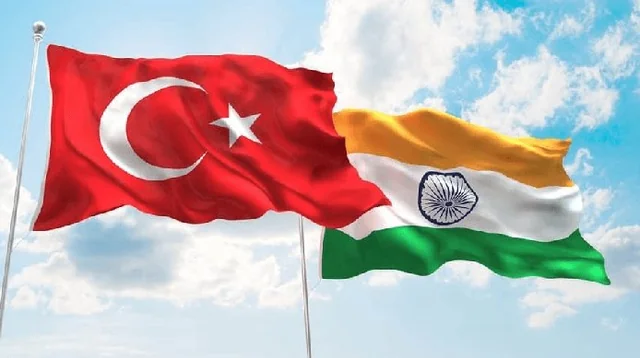

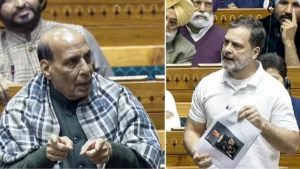
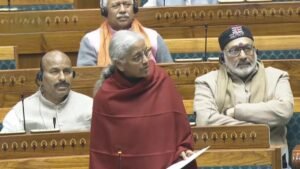
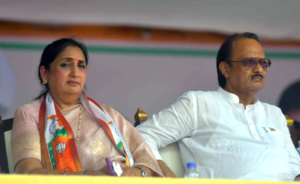
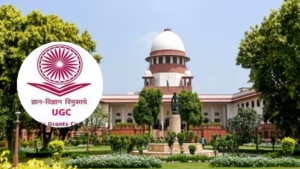

Be First to Comment